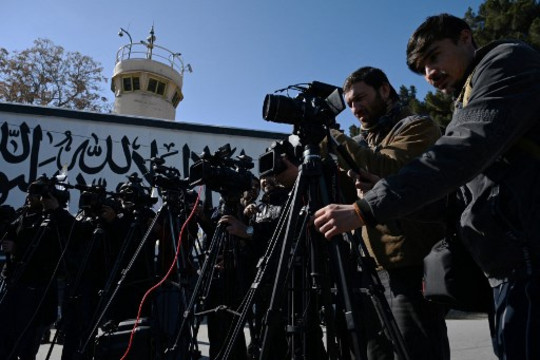Thousands of journalists and media professionals, especially women, have lost their jobs.
The survey, conducted by IFJ-affiliate Afghanistan National Journalists Union (ANJU) across 33 provinces, shows 318 media have closed since 15 August 2021. Just 305 of the 623 media which were active before the Taliban took control are still operating.
The crisis has hit newspapers the hardest with just 20 out of 114 continuing to publish. 51 TV stations, 132 radio stations and 49 online media have ceased operations according to the report compiled for the IFJ.
The collapse of media and threats against journalists mean just 2334 journalists are still working from a pre-Taliban high of 5069. Just 243 women are still employed by media. 72% of those who have lost their jobs are women.
The report is the latest in a series of surveys being compiled thanks to the development of a new media monitoring programme by ANJU, supported by the IFJ and the Norwegian Journalists Union.
IFJ General Secretary Anthony Bellanger said: “For the first time, from data collected across 33 provinces, we can see the true scale of the crisis affecting journalism in Afghanistan. From threats to draconian reporting restrictions and from economic collapse to the withdrawal of development funding the picture is catastrophic not just for journalists who have lost their jobs or been forced to flee but also for citizens who are being denied access to information.
“The international community must urgently provide the aid and assistance to support journalists and journalism to shine a light on what is happening across Afghanistan and address the humanitarian crisis faced by journalists and their families - both those who have been forced to flee and those who remain but without work and in poverty”.

